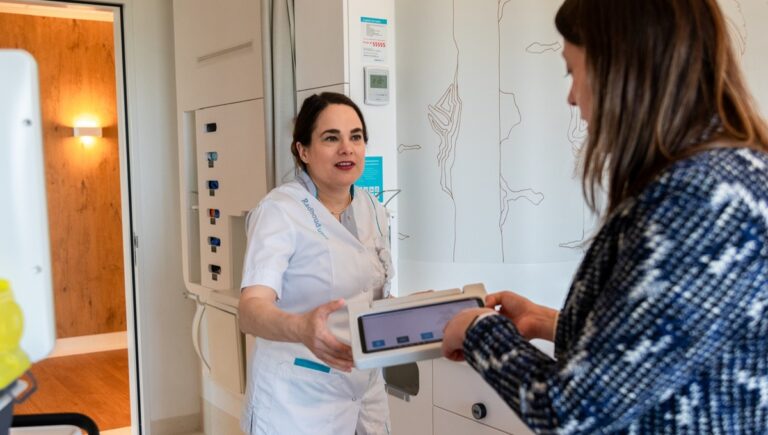WHO/Europe will host a webinar on 6 June looking at how data and digital health can be used to optimise the work of health and care professionals. This is the eighth webinar in the “Decoding Data and Digital Health” series, which covers digital health topics of importance to countries in the WHO European Region.
Digital Lifeline
Globally, the healthcare sector faces numerous challenges, including the threat of new disease outbreaks and severe workforce shortages. Although the WHO European Region has the highest density of health workers among WHO regions, many countries still report shortages. Furthermore, the workforce is ageing, with the number of new professionals significantly outnumbering those retiring. The challenges are further exacerbated by rising health worker burnout and job dissatisfaction, highlighting the urgent need for comprehensive strategies to support and invest in the health workforce.
The WHO/Europe report, “The health and care workforce in Europe: time for action,” noted that the COVID-19 pandemic has exacerbated long-standing challenges, but also highlighted new ones. In 2023, Member States in the European Region adopted and signed the Bucharest Declaration on the Health and Care Workforce, committing to increase investments in the education, training and protection of health workers.
Digitalization offers unparalleled opportunities to address many of the challenges facing healthcare workers and health systems. For example, digital tools can automate administrative tasks, freeing up healthcare workers so they can spend more time with patients. Technology also gives healthcare and care workers instant access to patient data, including medical history, test results, and treatment plans, which allows for more informed decisions and personalized care. Moreover, digital tools also help manage staff schedules, track working hours, and analyze workforce deployment across different locations and departments, optimizing resource allocation and efficiency.
The WHO European Region Framework for Action on the health and care workforce 2023-2030 recognises the important role that digitalisation plays in supporting health and care professionals. The WHO European Region Regional Digital Health Action Plan 2023-2030 aims to strengthen country capacities to manage the digital transformation in the health sector and improve digital health literacy.
Webinars
This one-hour event will bring together international experts to share insights, strategies, challenges and practical solutions to optimise the health and care workforce through data and digital health. The expert panel will explore the nuances of digital transformation with a focus on improving workforce resilience, efficiency, quality and skills.
The webinar will be held in English and Russian and is open to the public, including digital health developers, medical and care workers, policymakers, researchers, and representatives of advocacy organizations. If you would like to participate, please use the registration link.
The “Decoding Data and Digital Health” webinar series is supported by the European Commission (Directorate-General for Health and Food Safety) through the activity “Supporting Member States in the WHO European Region to strengthen their health information systems and promote health data governance”.


